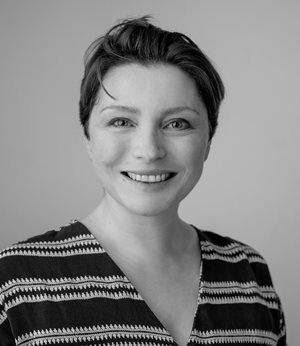Isabel Thomas introduces her 'So what? Who cares? Why you?' approach to applying for funding to support creative work
I’m no good at grants.
My first rejection came at university. I had applied for funding to top up a dwindling student loan. Several fellow students had been successful – even some who had attended private schools, owned laptops and spent holidays in their parents’ second homes.
I was different. I grew up in a low-income, single-parent family, earning my own money from the age of 14 by working in supermarkets and pubs. I inherited a fierce work ethic from my mum, a typesetter by day and freelance proofreader by night, who kept us afloat. I even held on to my Saturday job during my first undergraduate year, which was so unusual at Oxford that it was against university rules. While peers were sleeping, rowing, or reading in the Bodleian, I was working the tills at WHSmith. My money was hard-earned and carefully spent.
I remember explaining this through tears to the college bursar at the time. I was angry to be rejected, but also ashamed. I prided myself on being a good writer, but I clearly didn’t speak the language of grant applications, and I had no idea how to learn it.
After university I went straight into work and didn’t cross paths with another grant until my early 30s.
By then a full-time writer, I occasionally came across a grant I was eligible for, and more so after joining the Society of Authors (SoA). But once again I was an imposter in a world dominated by privilege, and once again I didn’t speak the language.
As my list of published books grew, so did my list of funding rejections – one or more in every SoA category! I didn’t just struggle to get writing grants. Despite securing a place to do postgraduate research at the University of Cambridge where I eventually earned an MPhil with distinction, for this too I failed to secure funding.
I didn’t doubt my ability as a writer. By this point in my career I could condense the theory of natural selection into picture book form or pen you an elegant explanation of general relativity in 500 words. I just couldn’t crack the language of grants.
But I’m nothing if not relentless!
In this strangest of all years, 2020, I was awarded a Developing your Creative Practice grant from Arts Council England. It has been a brilliant opportunity to jump out of the fast-flowing current of freelance writing for a few weeks, cling to a branch and focus on the future – to plan new, exciting areas of creative development which will benefit brand new audiences.
Have I learned the language of grants? I’m still not sure. But two things have been helpful: reading through another author’s application and applying tips I picked up during my MPhil studies, intended for academics looking to secure funding. I have included these tips below, adapted in a way that I hope will be useful for writers, illustrators, and other creatives. To some they may seem obvious, but if like me you are the first in your family to pursue a creative career, hopefully they will give you the confidence to apply for grants that catch your eye.
So what? Who cares? Why you?
So what?
Be very clear about what you will do. Make plans. Refine them. For some grants, this will be a specific project. For others, it may be ideas for taking your work in new directions, for stretching and developing your creative practice. Don’t assume that the reader knows about your field or your niche within it. Tell them about the space you work in and then show where your project fits in.
Who cares?
Make sure the ‘return on funding’ jumps out at a reader scanning through their fiftieth form. Who will your project (or projects) benefit? Which groups of people have benefitted from your creative work in the past? Who could benefit from it in the future? Why is now the right time to connect these groups with your project? How will you remove barriers and
help new audiences access your work? Research the aims of the funding body and identify ways in which your aims overlap. For example, the ‘ACE Developing Your Creative Practice’ application form asks for the applicant’s history of publicly funded creative work. For an author or illustrator, this might include work with state schools and other organisations.
Why you?
Does it ever take you longer to write a short author bio than the book itself? I can write enthusiastically about any area of science but tend to get tongue-tied when talking about myself. However, the grant application form is not the place for modesty or diffidence. Spell out everything that only you can offer, from your creative achievements to your background and perspective; from your unique combination of skills to your experience working with a particular audience. Show that you have original ideas, a strong vision and the ability to pull off what you have promised!
Be clear, concise and as specific as possible, so that from the very first paragraph, you, your projects and your knowledge of your audience leaps from the page.
© 2021 Isabel Thomas

Isabel Thomas is a science writer and children’s author. So what? Her critically-acclaimed books include Moth: An Evolution Story, winner of the 2020 AAAS Subaru Prize. Who cares? Isabel also writes outreach resources and articles for children’s science magazines. She is driven by a desire to see greater equality in access to STEM education and careers. Why her? Isabel has a background in science and journalism, and a postgraduate degree in science education research. Her latest books include Exploring the Elements with Sara Gillingham (Phaidon) and Fox: A Circle of Life Story with Daniel Egnéus (Bloomsbury). Find out more at www.isabelthomas.co.uk or say hello @isabelwriting